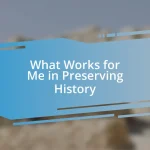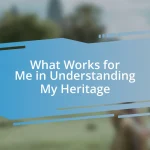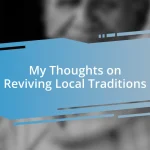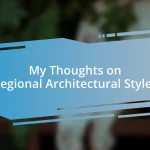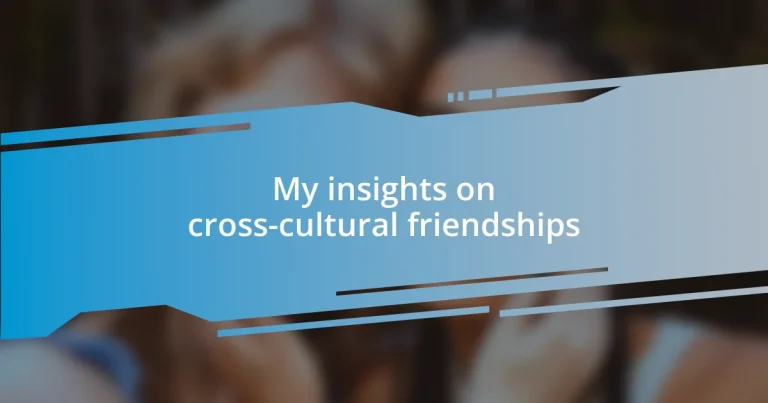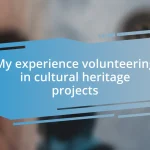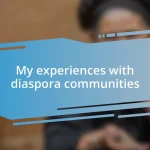Key takeaways:
- Cross-cultural friendships enhance understanding and empathy through the exchange of diverse perspectives and experiences.
- Effective communication, including active listening and openness to clarify misunderstandings, is essential for overcoming cultural barriers.
- Nurturing long-lasting relationships requires attentive communication, the celebration of differences, and consistent expressions of appreciation.
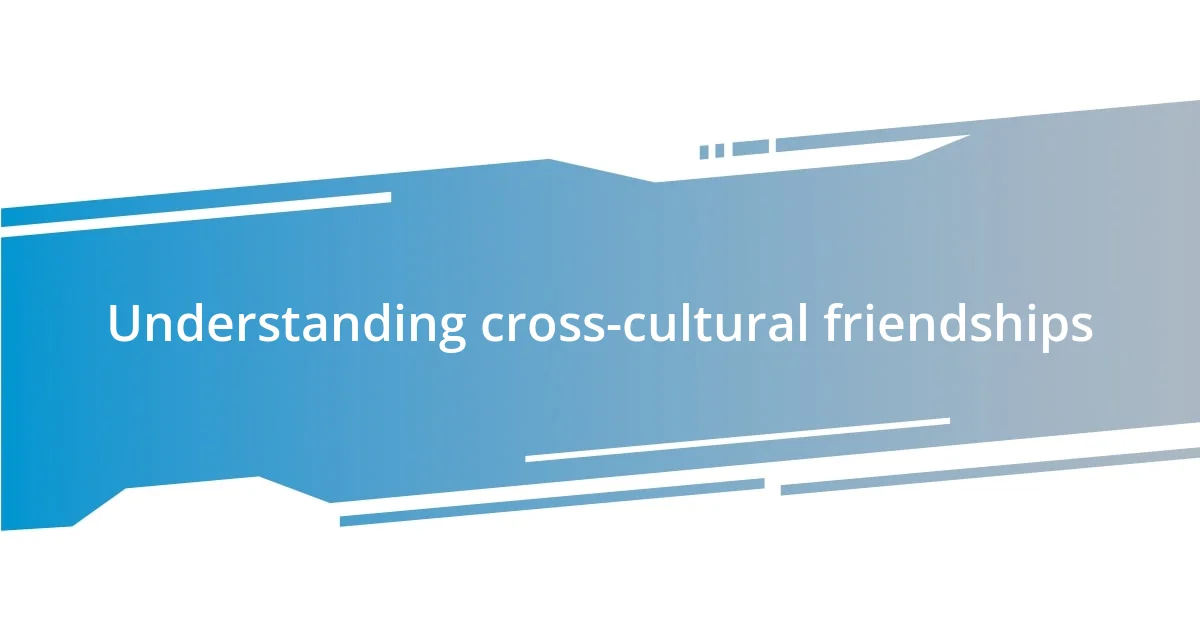
Understanding cross-cultural friendships
Cross-cultural friendships are about more than just shared interests; they thrive on the rich tapestry of different backgrounds and experiences. I still remember my first friendship with someone from a vastly different culture; we spent hours exploring each other’s traditions and values. It sparked a curiosity in me—how much can we learn from each other when we step outside our comfort zones?
When I think about my international friends, I can’t help but reflect on how our differing perspectives have shaped my understanding of the world. There was a time when cultural misunderstandings could have derailed our connection, but instead, we opted for open discussions. It’s fascinating to realize how vulnerability and genuine curiosity can transform a simple interaction into a profound exchange.
Have you ever wondered what it’s like to navigate the nuances of communication styles across cultures? I found that even something as simple as humor can vary dramatically; what’s funny in one culture might be perplexing in another. These moments have taught me that embracing differences not only enriches our friendships but also broadens our horizons, turning every conversation into a learning experience.
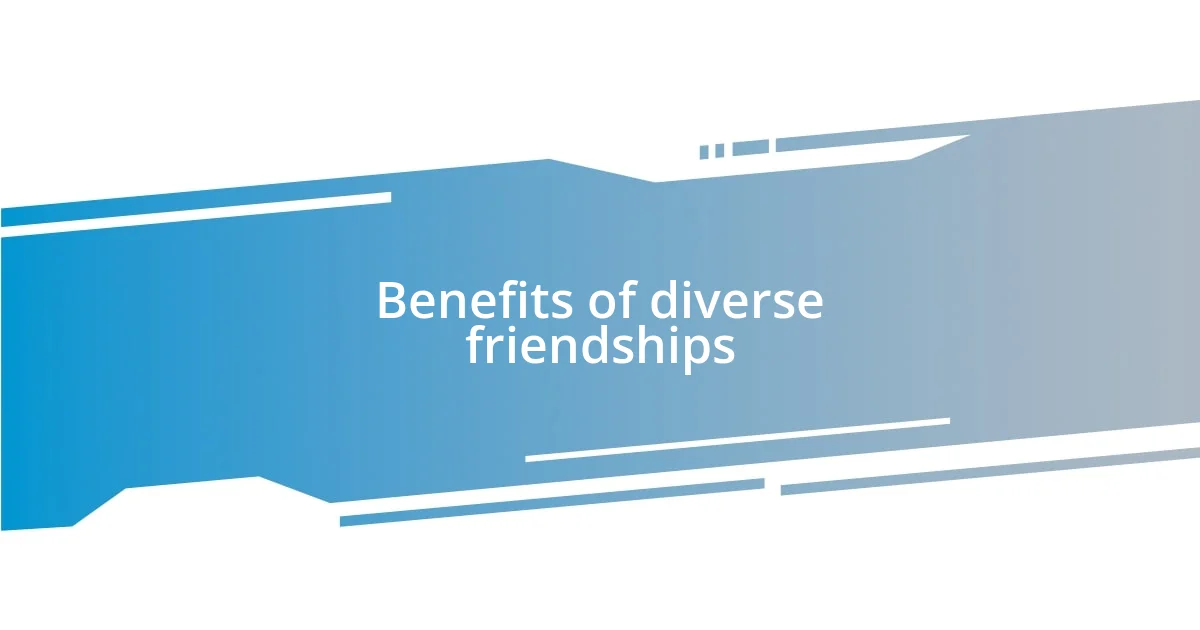
Benefits of diverse friendships
Diverse friendships open doors to experiences that might otherwise remain unexplored. I recall a friend from Italy who introduced me to the culinary arts in a whole new light. Not only did I master the art of pasta-making, but I also found joy in the stories behind every recipe. These deep connections often form the foundation of understanding and appreciation for traditions outside one’s own.
The beauty of varied friendships also lies in the broader perspectives they offer. When I engage with friends from different cultures, I’m often challenged to reconsider my preconceptions. I remember a discussion with a friend from Japan about the concept of ‘wa’, or harmony. It was eye-opening; it reshaped how I approach conflict resolution. These dialogues foster empathy, allowing us to navigate complex social dynamics together.
Lastly, the emotional richness that comes from these friendships can be profoundly healing. A close friend from Nigeria once shared his experiences with cultural identity, and it resonated with parts of my own journey. The vulnerability we both displayed forged a bond that felt deeply reassuring. We learned that despite our differences, the universal themes of love, hardship, and hope became our shared language.
| Aspect | Benefit |
|---|---|
| Expanded Perspectives | Diverse friendships encourage individuals to challenge their assumptions and see the world from different viewpoints. |
| Cultural Learning | They provide learning experiences through shared stories, traditions, and practices. |
| Emotional Support | Diverse friendships can offer deep emotional connections, fostering empathy and understanding. |
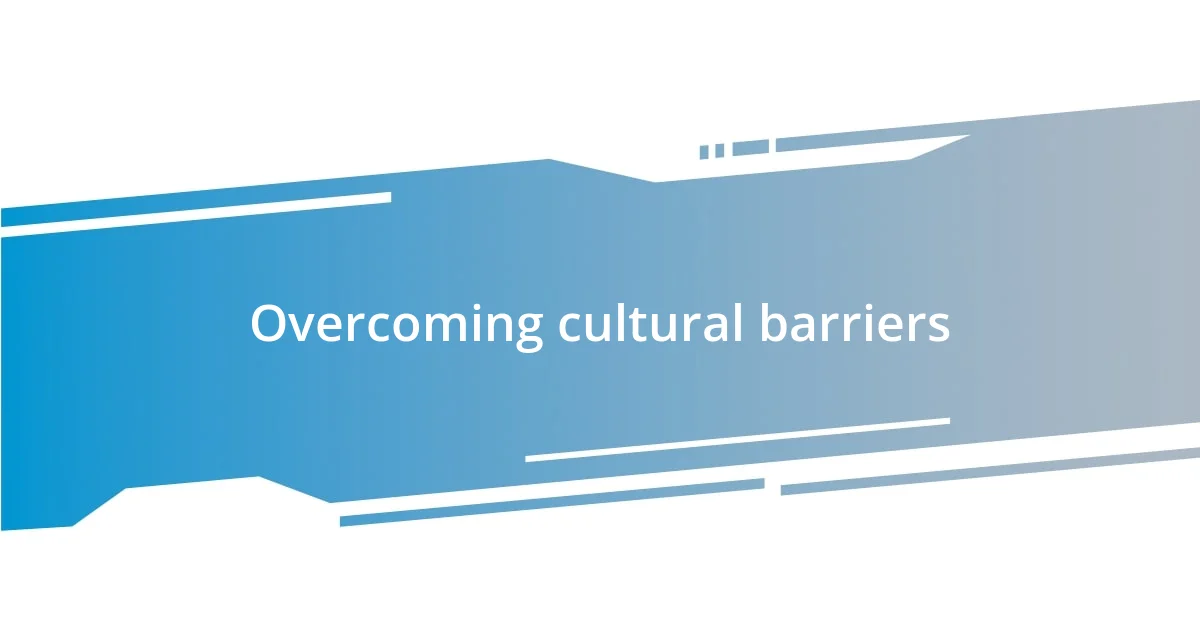
Overcoming cultural barriers
Navigating cultural differences can certainly be challenging. When I first became friends with someone from a different country, I realized how easy it is to misinterpret gestures and expressions. Once, during a dinner, I mistook a polite nod for agreement, leading to a hilarious and enlightening conversation about communication styles. This experience reinforced the importance of asking questions and clarifying intentions—a small investment that pays huge dividends in understanding.
To truly overcome cultural barriers, I believe a few key actions can make all the difference:
- Active Listening: Pay close attention to what your friend says. It shows respect and helps you understand their perspective.
- Ask Questions: Don’t hesitate to inquire about their culture or experiences. Curiosity fosters deeper connections.
- Share Your Experiences: Openness about your own background can encourage your friend to do the same, creating a safe space for dialogue.
- Stay Patient and Adaptable: Misunderstandings may occur; responding with patience and a willingness to adapt can transform challenges into opportunities for growth.
In my journey, I’ve found that embracing these practices not only strengthens friendships but also cultivates a genuine appreciation for our differences, turning potential obstacles into bridges of connection.
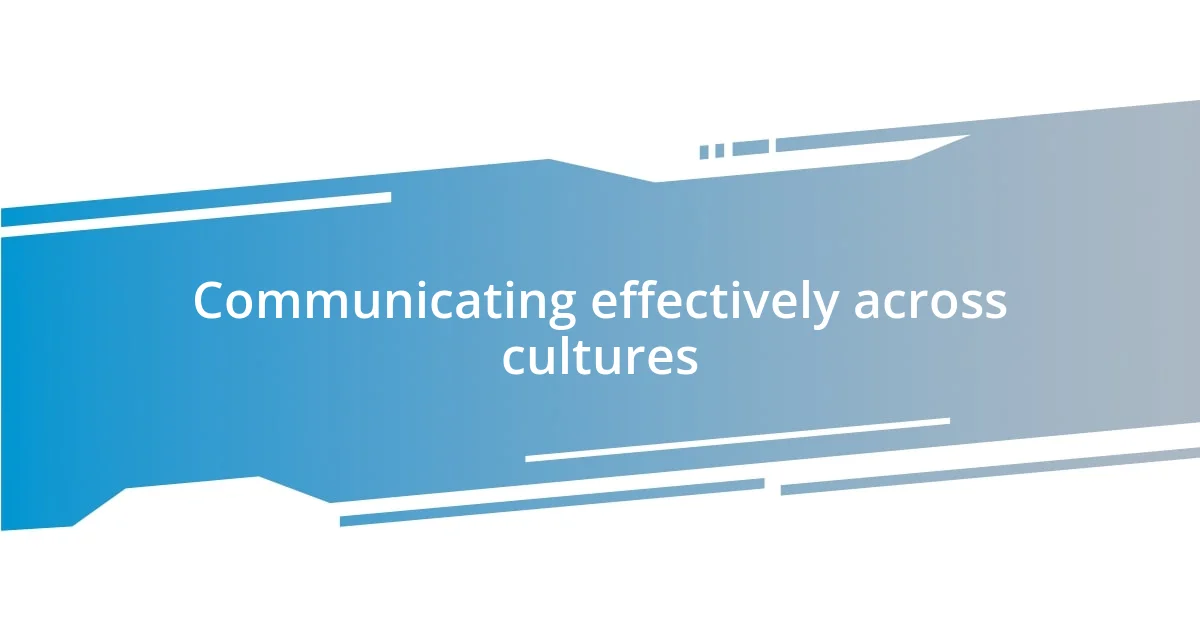
Communicating effectively across cultures
Effective communication across cultures requires both awareness and sensitivity. I remember one time while participating in a group project with classmates from diverse backgrounds; our differing ways of expressing agreement led to confusion. I learned that simple phrases like “I see your point” or “That’s interesting” can significantly clarify intent. Have you ever experienced miscommunication just because of a different way of saying something? It truly highlights the nuances of language and culture.
Another important aspect is the role of non-verbal cues. Once, at an international gathering, I realized that while some cultures value strong eye contact, others may interpret it differently. A friend from Brazil shared that in his culture, too much direct gaze can feel confrontational. This was a lightbulb moment for me! Understanding these variations can help avoid uncomfortable situations and build smoother connections.
Lastly, humor can be an incredible bridge in cross-cultural conversations. I vividly recall sharing a joke with a friend from Germany that initially fell flat due to cultural references. But when we unpacked it together, we discovered a shared love for laughter. It made me wonder: how powerful can humor be in easing the tension of language barriers? I’ve found that laughter not only releases stress but can also create a unique bond that transcends language.
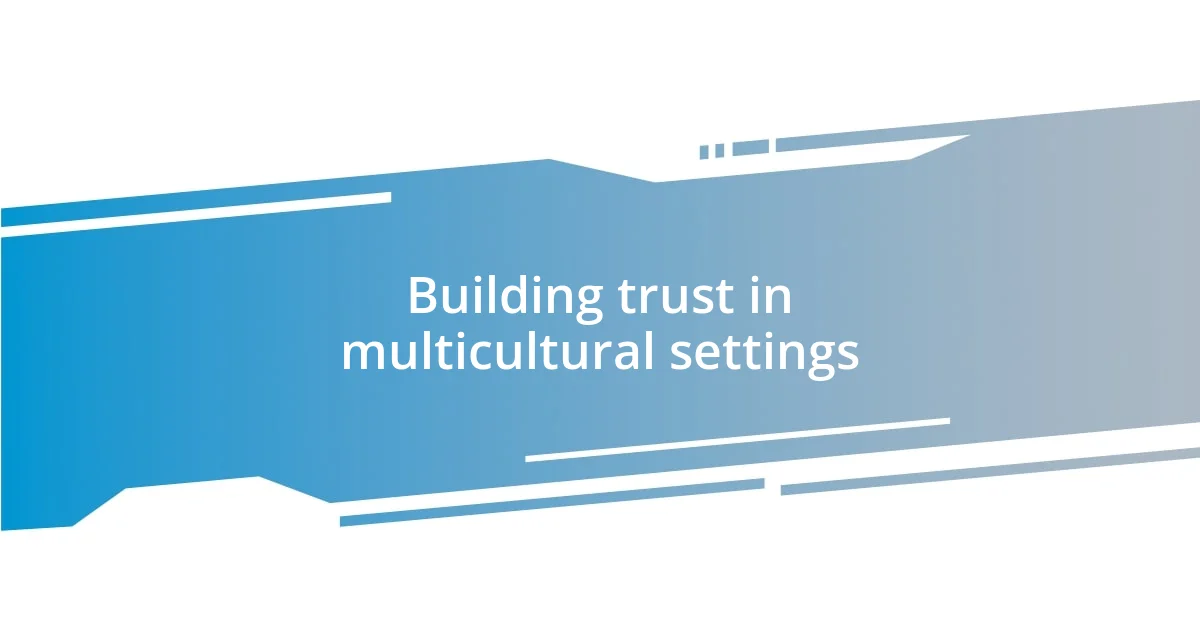
Building trust in multicultural settings
Building trust in multicultural settings requires intentional efforts, especially when navigating the nuances of different cultural backgrounds. I vividly recall forming a close bond with a friend from Japan. Initially, there was this unspoken distance; we were both tentative in our interactions. However, I learned that just taking the time to understand her values, such as the emphasis on harmony, helped me establish rapport. So, how can we cultivate this level of trust? Simple gestures like remembering important cultural customs can go a long way.
I also believe that sharing vulnerability can be a powerful tool in fostering trust. During one conversation with my friend, I felt comfortable revealing my own struggles with adapting to new cultures. Her response was one of empathy and support, which helped solidify our friendship. I often wonder, what if we all embraced that openness when interacting with people from different backgrounds? It might just create an environment where trust flourishes more naturally.
Lastly, consistency in actions plays a critical role. In multicultural friendships, it’s vital to follow through on commitments, as reliability enhances trust significantly. I remember planning a weekend get-together with friends from different countries. Despite the challenges of scheduling across time zones, we made it a point to keep communication open and honest. This experience taught me that when people see you as dependable, it lays a strong foundation for deeper connections, regardless of cultural differences.
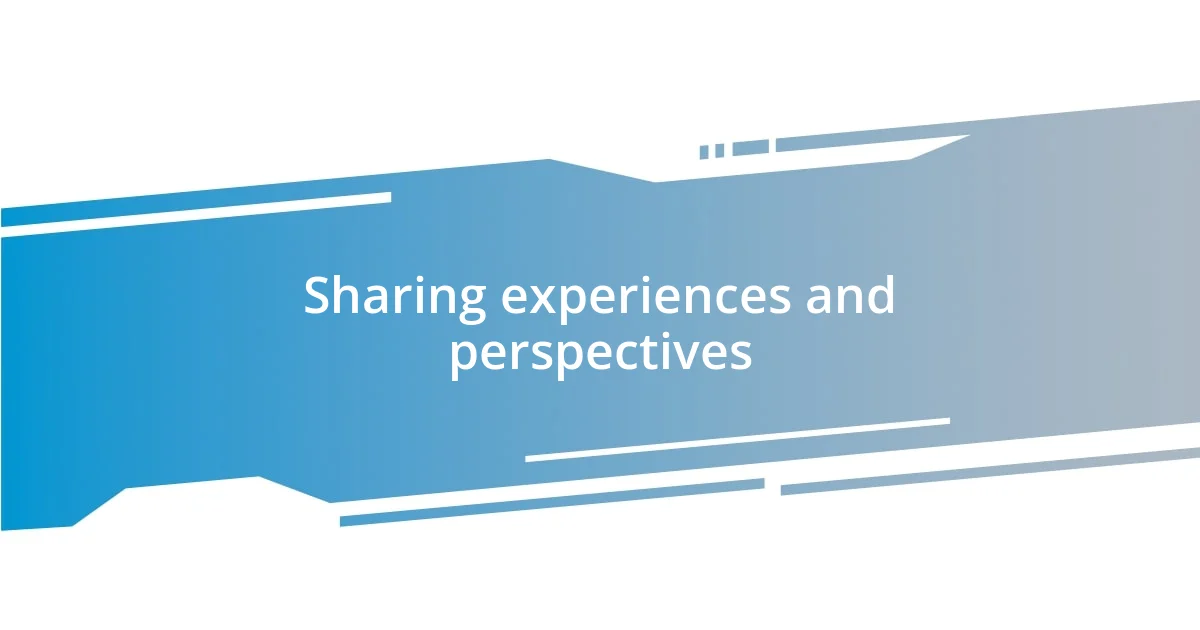
Sharing experiences and perspectives
Sharing experiences and perspectives can transform our understanding of the world and deepen friendships. I remember a weekend trip with friends from various countries. We sat around a campfire, sharing stories about our childhood traditions. It was mesmerizing to learn how holidays were celebrated differently in each culture, igniting a sense of appreciation for our unique backgrounds. Have you ever considered how sharing simple stories can shed light on our differences and similarities?
What truly strikes me about these conversations is the emotional resonance they bring. I once exchanged travel experiences with an acquaintance from India. As he recounted moments of difficulty during his journeys, I found myself empathizing deeply, recalling my own travel mishaps. It struck me how our shared laughter over these challenges bonded us closer, reinforcing the idea that we’re not alone in our adventures and struggles. Don’t you find it fascinating how common human experiences can draw us together, regardless of background?
Exploring different perspectives can also lead to surprising revelations. During a dinner with friends from South Africa, I learned about the cultural significance of storytelling in their communities. The way they conveyed their heritage through tales fascinated me and got me thinking about how often we overlook the power of our own stories. Could it be that sharing our narratives not only enriches our friendships but also expands our understanding of the world? I believe embracing and valuing these exchanges can truly enhance our relationships.
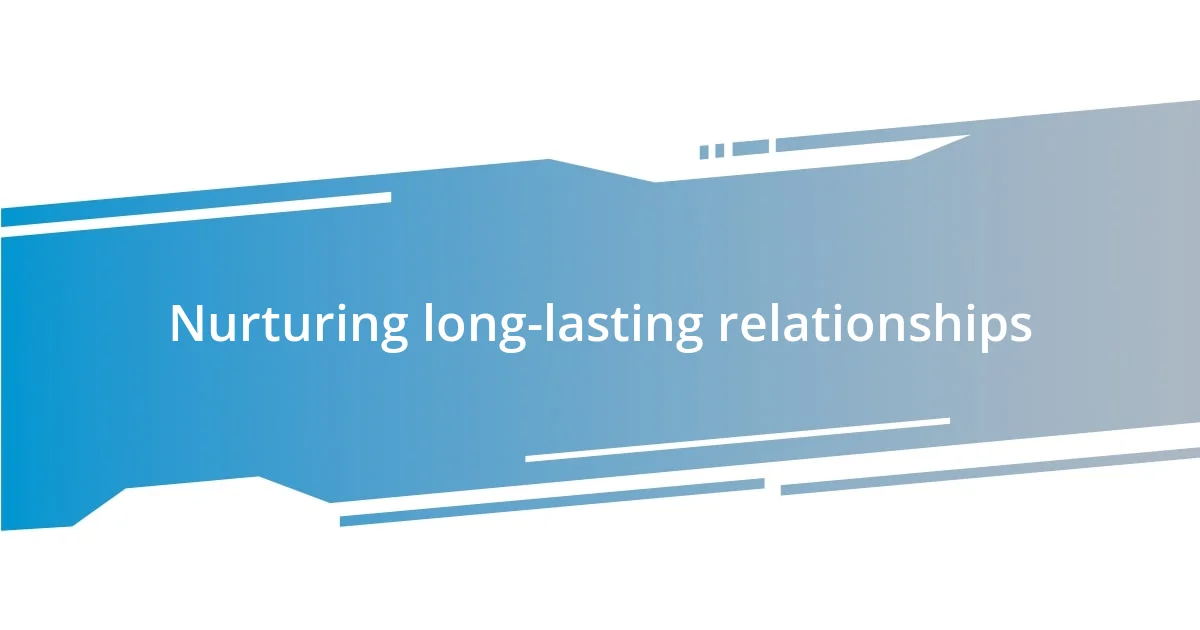
Nurturing long-lasting relationships
To nurture long-lasting relationships, attentive communication is essential. I remember a time when I had a falling out with a dear friend from Brazil. Instead of letting resentment brew, I reached out for a heartfelt conversation where we both expressed our feelings. That honest dialogue not only mended our rift but also deepened our connection, reminding me that vulnerability can pave the way for stronger bonds. Have you ever experienced a moment where a simple conversation changed everything?
Another key aspect is celebrating differences. I once organized a potluck dinner featuring dishes from various cultures, each representing a friend’s heritage. The joy radiating from everyone as we tasted diverse flavors felt electric. It dawned on me how embracing and appreciating each other’s backgrounds not only enriches our experiences but also creates a vibrant tapestry of shared memories. Isn’t it surprising how something as simple as food can ignite unity among friends?
Lastly, consistency in showing appreciation is vital. I recall sending small notes to my friends to express gratitude for their presence in my life. Seeing their smiles when they received those notes filled me with joy. It reminded me that acknowledging and celebrating each other’s contributions fosters lasting connections. Do you take the time to show appreciation for those who enrich your life? Little gestures can cultivate bonds that stand the test of time, reinforcing the idea that love and friendship thrive on mutual recognition.
